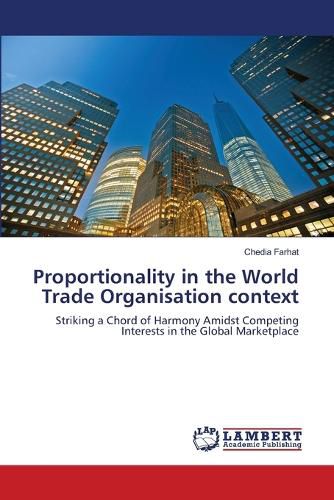Readings Newsletter
Become a Readings Member to make your shopping experience even easier.
Sign in or sign up for free!
You’re not far away from qualifying for FREE standard shipping within Australia
You’ve qualified for FREE standard shipping within Australia
The cart is loading…






This title is printed to order. This book may have been self-published. If so, we cannot guarantee the quality of the content. In the main most books will have gone through the editing process however some may not. We therefore suggest that you be aware of this before ordering this book. If in doubt check either the author or publisher’s details as we are unable to accept any returns unless they are faulty. Please contact us if you have any questions.
The World Trade Organization (WTO) oversees a complex system of global trade governed by treaties, agreements and dispute settlement mechanisms. As member states balance domestic policy autonomy with international trade obligations, conflicts inevitably arise.Proportionality is an established principle of domestic and international jurisprudence that offers a pragmatic and principled approach to resolving these complex trade disputes. This book analyzes the proportionality principle and its potential application in the WTO context. It examines how proportionality could function as an objective, balanced framework for WTO adjudicators when domestic laws or policies are challenged. Case studies of landmark WTO disputes are used to demonstrate how a proportionality analysis could have impacted rulings. The book also considers challenges and limitations to institutionalizing proportionality at the WTO. It argues flexibility and an evolutive interpretation respecting member sovereignty are needed. Overall, the proportionality principle offers a rules-based yet sensitive mechanism promoting coherent and equitable solutions when trade intersects with other societal priorities.
$9.00 standard shipping within Australia
FREE standard shipping within Australia for orders over $100.00
Express & International shipping calculated at checkout
This title is printed to order. This book may have been self-published. If so, we cannot guarantee the quality of the content. In the main most books will have gone through the editing process however some may not. We therefore suggest that you be aware of this before ordering this book. If in doubt check either the author or publisher’s details as we are unable to accept any returns unless they are faulty. Please contact us if you have any questions.
The World Trade Organization (WTO) oversees a complex system of global trade governed by treaties, agreements and dispute settlement mechanisms. As member states balance domestic policy autonomy with international trade obligations, conflicts inevitably arise.Proportionality is an established principle of domestic and international jurisprudence that offers a pragmatic and principled approach to resolving these complex trade disputes. This book analyzes the proportionality principle and its potential application in the WTO context. It examines how proportionality could function as an objective, balanced framework for WTO adjudicators when domestic laws or policies are challenged. Case studies of landmark WTO disputes are used to demonstrate how a proportionality analysis could have impacted rulings. The book also considers challenges and limitations to institutionalizing proportionality at the WTO. It argues flexibility and an evolutive interpretation respecting member sovereignty are needed. Overall, the proportionality principle offers a rules-based yet sensitive mechanism promoting coherent and equitable solutions when trade intersects with other societal priorities.